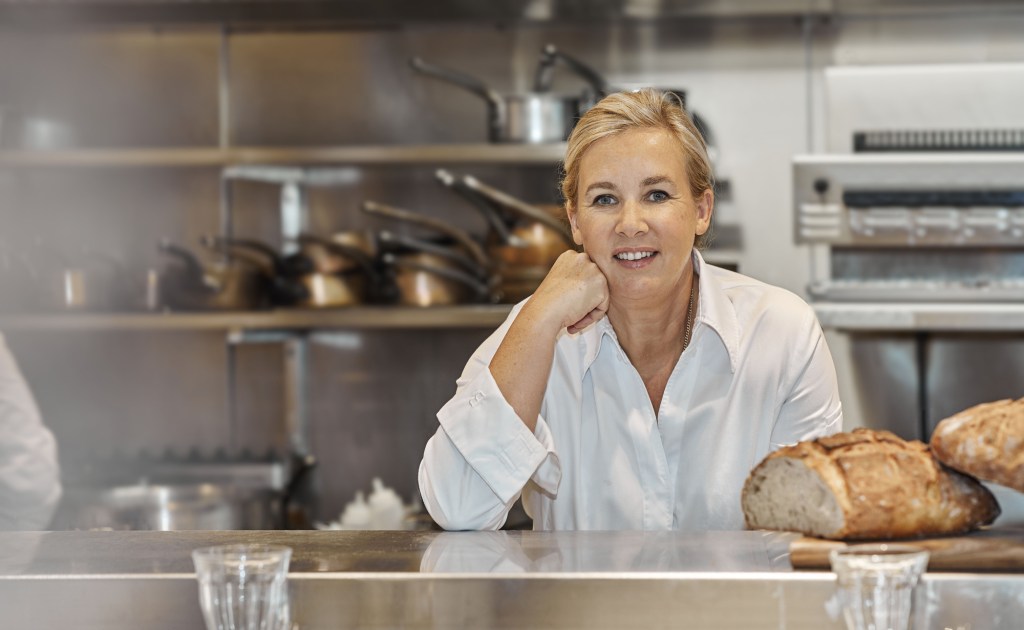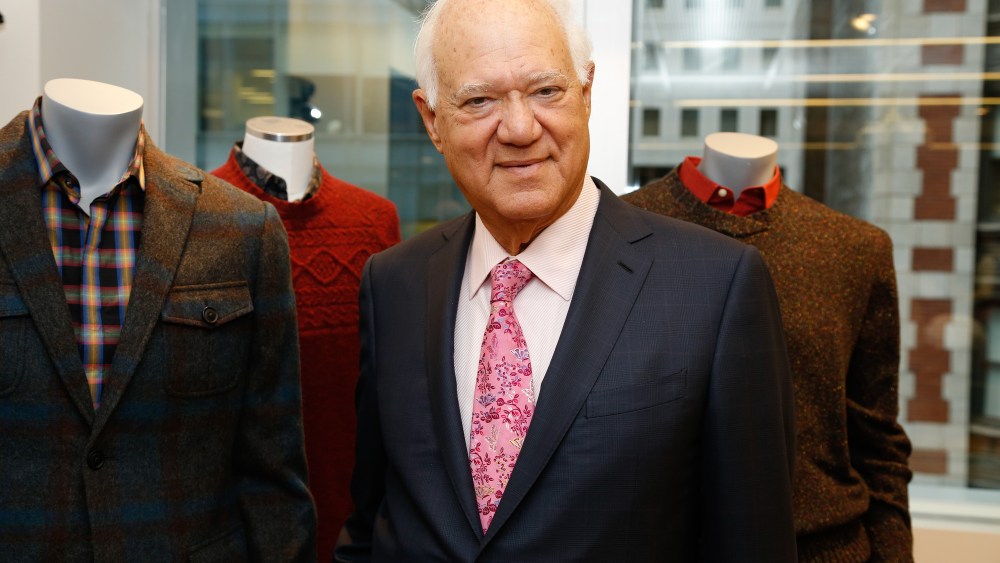“Don’t call me ‘chef,’ it’s not my name,” quips Hélène Darroze, a reaction she has whenever people approach her using her profession as an honorific.
That said, most will be awed by someone who has garnered six Michelin stars, is a cornerstone of the French edition of culinary contest “Top Chef” and who was named the world’s best female chef in 2015 by the annual “50 Best” list.
Almost three decades after she broke on the culinary scene as a rising — and rare female — star, the recipe to Darroze’s success remains unchanged.
“Be honest with the product, work with local foods and seasonality,” she says. “My work is to put the product at its best, around taste and emotion.”
This is what she credits for the meteoric rise that began long before she arrived in Paris a quarter of a century ago to open her first eponymous restaurant, which is now called Marsan par Hélène Darroze after its 2019 renovation.
A 1990 graduate of the Sup de Co business school in Bordeaux, she’d set her cap on hospitality management but an experience in the kitchens of Alain Ducasse at the Louis XV in Monte-Carlo’s Hôtel de Paris saw her heading to the kitchens.
Five years later, she picked up the mantle of the familial “Chez Darroze” restaurant in southwestern France. Nominations as “Young Chef of the Year” and “Great of Tomorrow” by gastronomic guides followed within 12 months and in 1996 she was selected to serve lunch for then-French President Jacques Chirac and German Chancellor Helmut Kohl.
At Hélène Darroze in Paris’ Saint-Germain-des-Prés neighborhood, she wowed with ingredients from France’s southwest regions, turned into gourmand yet elegant fare. A first Michelin star came in 2001, the second in 2003 but was lost in 2010.
“Nothing is ever won,” she says. “Every day is a new day where we have to put ourselves in question and that’s what we do.”
But the restaurant’s post-pandemic reopening brought a shift — and the return of that second star in 2021.
“This one is the result of maturity,” she feels.
And that makes Marsan not only “the restaurant of her dreams” but also the core of her group, which includes Parisian bistro Jòia, her one-Michelin-star restaurant in Villa La Coste in Provence, and the three-starred “Hélène Darroze at The Connaught” in London, which also has her overseeing every culinary aspect of the property.
Then, as now, her philosophy is simple.
“I cook like a woman, like a mother — for generosity, for happiness — not to demonstrate something or be the best at [a] technique,” she says. “I just cook to please people.”
And that brought the one challenge she shares with fondness: getting her team to call her “Hélène” rather than chef. “You can’t imagine how difficult it is to get my staff to call me by my name,” she says.
But after two decades of her name writ large literally and metaphorically, the restaurant reopened as Marsan, the name of the southwestern French area that encompasses the city where she was born and where four generations of her family have been established as restaurateurs since 1895.
“I really had the feeling that I had to change the name,” she says. “This was the way to pay tribute to my roots, my family.”
For all the Michelin stars she has garnered, Darroze’s trajectory is a path where “there is no professional life and no private life,” so interconnected are the two spheres.
That much was evident in her first book, an autobiography of sorts published in 2005; it came with love letters and recipes and friends tried to talk her out of publishing it. “It was so personal, they felt it opened me to criticism,” she recalls.
And the kitchen, across all her establishments, remains at the center of family life, as it had for generations of Darrozes.
Her daughters Charlotte and Quitterie, now 16 and 14, spent many an after-school moment or Saturday night sitting in their mother’s office taking in the ballet happening in the kitchen.
“So many days, nights, moments — even my parents spent many Christmases in my office at the Connaught — there is a mix of everything,” she recalls. “My girls spoke about it recently and there was regret in their voice.”
If each opening stands as a professional milestone, Darroze is keener to talk about what she learned from them. Take Jòia, which she opened in 2018. “It was for me a new way of cooking, of welcoming people,” she says. “It was the first time I interacted with bistronomie and not fine dining.”
Ditto for her latest project, which saw her take over the culinary direction of La Grande Brasserie and La Grande Table Marocaine, two of the restaurants at the famed Royal Mansour hotel in Marrakesh.
On paper, they promise a heady journey into French fare and Moroccan cuisine, respectively. Over Darroze’s Instagram, her experience reads like a fabulous journey through the recipes and know-how of the female chefs she met and the country’s produce. “I come back like an apprentice, to learn,” the chef says.
Partaking in and passing on knowledge is what led her to the French edition of culinary contest “Top Chef.”
Initially reluctant to join its jury — she lived in London and wasn’t much of a TV watcher — she came on board when the production explained it wanted culinary leaders to serve as coaches rather than judges and really connect with the candidates.
“It was an opportunity to do my job in another way,” she says. “I also accepted because it was something new, different and funny in my career, but mainly because it was about transmission.”
What made her sign on to the 15th season, on French screens since mid-March and her ninth participation, is that the two-month filming session became “a question of friendship, of transmission, and a little interlude in my daily life,” she says. “And with [fellow chefs] Dominique [Crenn] and Stéphanie [Le Quellec], that’s just the cherry on the cake.”
Then there is what she shares with candidates. Hearing Danny Khezzar, a finalist of the 2023 edition, say that Darroze made him understand the importance of emotion and showing that bit extra than stellar technique, thrilled her.
“I was really happy to hear that because I believe that cooking with your heart is much more important than cooking with your skills.”



